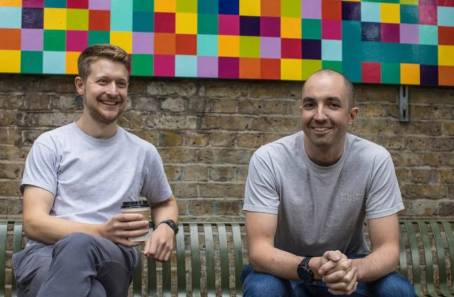Companies like OpenAI and Anthropic are spreading the idea that people can use everyday language to ask AI to answer their questions, write their proposals, or draw pictures. Meanwhile, a London-based startup called Basecamp Research has raised $60 million to take on a new challenge: making an AI that can not only answer any question about biology and the biodiversity of the natural world, but also come up with new ideas that humans could not come up with on their own.
The CEO of Basecamp Research, Glen Gower, said in an interview, “There is a huge data gap right now where people are training biology models.” “Models that don’t see enough of nature are being trained by some of the world’s best pharmaceutical companies.”
That’s a huge problem that the company wants to solve.
As undergraduates at Oxford, Gower and his co-founder Oliver Vince met and became friends. Both of them have PhDs in biology. Vince said the name “Basecamp Research” comes from the time they lived on an ice cap and used tools they had made themselves to sequence DNA.
He said, “We were the first to make a mobile DNA sequencing lab.” He also said that they have changed those parts “into very small units” so that they can collect data for the younger startup.
Instead of trying to organise the huge amounts of megabytes and books of biological research that have been created over decades, Basecamp Research is carefully collecting first-hand primary data to build its models from the ground up. The goal is to create an AI that will understand biology better than any human because it can use such a large amount of data.
Gower explained, “We use a mix of exploration—actually going around the world to collect data and learn about Hot Springs, volcanoes, and other similar things—and an AI program whose only goal is to train huge language models to create what’s basically a “ChatGPT” for nature.” He said that the company might be building the “largest compute cluster” dedicated to the natural world to power this.
The best thing about tools like ChatGPT is that they can remember and come up with normal language answers to questions that are asked of them. The same is true for what Basecamp Research wants to do. Another difference is that there is so much information out there—Vince says we have only managed to gather about 1% of the information about our world’s biodiversity—that humans don’t even know how to ask the right questions yet. Andy Conrad, a backer of S32 who used to be CEO of Verily Life Sciences at Google, says that Basecamp Research’s platform can “answer questions that the biopharma industry hasn’t even known to ask.”
Gowers went on, “So instead of something that understands the language of text or speech, [our platform] understands the language of DNA.” This means that it can do more in the biological design space than people can. “We’re not very good at understanding DNA in general, so if we give these language models enough data, they can really, really, really do well.”
The Series B was led by the Parisian company Singular. It comes at the same time as what Basecamp Research calls a “multi-year collaboration” between Dr. David R. Liu and the Broad Institute, which is MIT and Harvard’s main biomedical research centre. Through partnerships with other biomedical and research groups and by gathering more data to improve its models, the company will continue to grow with the help of the money.
The cash comes after the startup has been making a lot of progress. Gower said that the company has formed more than 100 partnerships in 25 countries so far, with groups adding first-hand knowledge to its database and 15 using its AI to help them make new products. Procter & Gamble is one of the first companies to work on these kinds of goods. They are making new fabric dyes that are more environmentally friendly.
But Basecamp Research’s plans go further than this. They want to help groups find new drugs and solve other big problems that have to do with knowing and using nature better.
Even though business deals are being tied, its work with the Broad Institute shows how this could look. At the moment, Dr Liu’s labs are studying “novel fusion proteins and other large molecules” that are used to make genetic drugs. They are building these things with datasets from Basecamp Research.
The less likely thing is that the company will have a real “chatGPT”-style interface. The founders, Gowers, said that they think there are more opportunities in working with other businesses than in making a product for people in general. That doesn’t mean that won’t be on its plans in the future, he said.
This seems to be the same method other companies are taking when they build big “science” models. For example, Jua, which is building a big physics model, has started by focussing on companies that need better information about weather patterns.
Also Read: Openai Lets Some Paid Users Use Chatgpt’s Very Realistic Voice
The startup isn’t saying how much it’s worth, but it is saying that this Series B round, which also includes S32, redalpine, André Hoffmann, Vice-Chairman of Roche, Feike Sijbesma, Chair of Royal Philips and Former CEO of DSM, and Paul Polman, former CEO of Unilever, is an increase. To give you some background, Basecamp Research has raised $85 million so far from partners such as Hummingbird, True Ventures, strategic backer Valo, and more. The last time PitchBook valued it, in 2022, it was only worth $71 million.
What do you say about this story? Visit Parhlo World For more.


